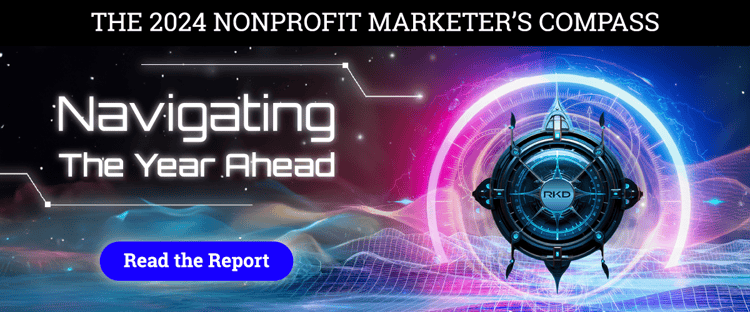The world now has its first comprehensive AI law.
The European Parliament just passed the AI Act. According to the BBC, the new law will “regulate AI based on its capacity to cause harm to society. The higher the risk, the stricter the rules.”
That means AI products and technologies will face new regulations and guideposts around future development. Some could even be banned from use in the European Union if they are deemed to be a threat to the safety and rights of citizens.
But why should nonprofit organizations “across the pond” care? Two reasons:
- AI products may change. You may not be using ChatGPT, but you’re probably already using AI in some form—chatbots, automation, analytics, etc. You may see changes in these products as they adjust to new regulations. We’ve seen it before with Google’s switch to GA4 to meet the European data privacy standards.
- Similar U.S. laws may follow. It’s no surprise that Europe was the first to act. After all, they have been at the forefront of legislation around technology and data privacy for years. The Biden administration issued an executive order in October to help mitigate risks, and Congress may have the appetite to pass legislation after failing to restrict social media in its early days.
The AI Act must go through a few more steps before it’s officially the law of the land, but those steps are considered mere formalities at this point.
Could TikTok really be banned in the US?
Speaking of regulations on technology, the U.S. House of Representatives just passed new legislation that would ban the popular video app TikTok. Politicians in both parties are concerned about the possibility of the Chinese government using TikTok to spy on Americans or push pro-China propaganda.
TikTok is owned by ByteDance, and the social media app has more than 150 million users in the U.S. The Chinese company has previously admitted that former employees had accessed the personal data of American journalists, and it has been accused of allowing the Chinese government to spy on Hong Kong protestors in 2018.
If the House bill passes the Senate, ByteDance would be given six months to sell TikTok or the app would become illegal. However, this would most likely face a legal challenge, which would delay that deadline.
So, will this actually happen?
Will the Senate pass the bill, and will President Biden sign it? Biden has noted his support for the bill, but the Senate doesn’t seem very interested in this free speech vs. data privacy battle during a heated election year.
If your nonprofit organization is on TikTok or thinking about joining, here are a couple of resources to consider from our digital experts:
- 5 fun ways your nonprofit can get involved on TikTok
- The beginner’s guide to short-form vertical video content for nonprofits
How Google’s newest updates affect SEO
Google just released several new updates, including its March 2024 core update. This brings “a seismic shift to the SEO industry,” according to Search Engine Land.
The biggest change is that Google will no longer warn websites with spammy content and links—it will now fully deindex them, removing the sites from its search results.
This is great news for users and for organizations that have built up their content the right way. Google expects a 40% reduction in unhelpful content.
Those sites that tried to take shortcuts—copying others’ work, using AI-generated copy, filling pages with spammy links—are in trouble.
Wondering if your website has been deindexed? Try typing “site:insertyourwebsite.com” into Google to see if you appear in the results.
Separate from the core update, Google also made an expected change to its Core Web Vitals rankings this month. As we’ve shared previously, Google is including a new metric called Interaction to Next Paint (INP), which will replace First Input Delay (FID).
Core Web Vitals primarily measure how long it takes a page to load initially, but they didn’t measure anything after the page loads—until now. INP makes up for that by observing the delay between when a user interacts with something on the page (for example, a dropdown menu) and how long it takes for that feature to load.
Mitchell Chokas, our SEO expert, notes that it may take up to a month for these changes to fully roll out. Nonprofit organizations may not see the effects yet but should keep an eye on their organic search numbers.
AI, personalization, segmentation among top email trends
Litmus just released “The State of Email Trends Report,” which features a wealth of insights from more than 480 email marketers.
The report lists a few big trends to watch for this year:
- 34% of respondents use generative AI for written content.
- Personalization is a proven winner—80% see performance improvement.
- Email segmentation creates big results—90% say it boosted performance.
Among personalization elements, here are the big winners:
- 77% Subject line personalization
- 73% Emojis in the subject line
- 72% Animated GIFs or PNGs
- 68% Personalization with dynamic content
- 34% AI-generated content/copy
- 34% Video
It’s always worth testing new things in email where the learnings are much faster than direct mail.






Leave a comment: